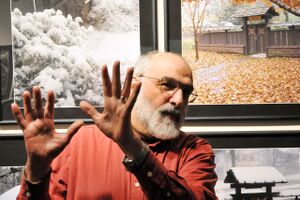Best, J.
| English Phonetics | Jonathan Best |
|---|---|
| Sort Name | Best, Jonathan |
Tibetan calendar dates
| Website: | Faculty Page |
|---|
- Primary Affiliation (Workplace)
- Wesleyan University
PhD University
- Harvard University
Education
PhD in Fine Arts and East Asian Languages & Civilizations, Harvard University, 1976;
MAA Wesleyan University;
MA Harvard University;
BA Earlham College
Biographical Information
Jonathan Best received his PhD from Harvard University in 1976; unusual for its time it was a joint degree from the Department of Fine Arts and the Department of East Asian Languages & Civilizations. Subsequently he has taught East Asian art history at the University of Virginia and Wesleyan University, but his research and publications—all focused on early Korea—have addressed religious history, diplomatic and political history, as well as art history. His current research project is an investigation of the manifold chronological problems in the earliest chronicles of Korea and Japan, the Samguk sagi and the Nihon shoki. Having retired from teaching at Wesleyan in July 2014, he is now happily focused on this intriguing and multidimensional historiographic puzzle. In part preparatory to the four-volume study projected as the culmination of this research program, he published A History of the Early Korean Kingdom of Paekche—together with an annotated translation of the Paekche Annals of the Samguk sagi (Harvard University East Asia Center, 2006). In addition to enjoying all the rights and privileges attendant to being an emeritus professor at Wesleyan, he is currently an Associate in Research at Yale, a member of the Steering Committee for the Early Korea Project at Harvard (now the Cambridge Institute for the Study of Korea or CISK), and a Member of the Institute for Advanced Studies in Princeton. (Source Accessed Sept 10, 2020)
- Wiki Pages
- Person description or short bio
Expand to see this person's philosophical positions on Buddha-nature.
| Is Buddha-nature considered definitive or provisional? | |
|---|---|
| Position: | |
| Notes: | |
| All beings have Buddha-nature | |
| Position: | |
| If "Qualified", explain: | |
| Notes: | |
| Which Wheel Turning | |
| Position: | |
| Notes: | |
| Yogācāra vs Madhyamaka | |
| Position: | |
| Notes: | |
| Zhentong vs Rangtong | |
| Position: | |
| Notes: | |
| Promotes how many vehicles? | |
| Position: | |
| Notes: | |
| Analytic vs Meditative Tradition | |
| Position: | |
| Notes: | |
| What is Buddha-nature? | |
| Position: | |
| Notes: | |
| Svātantrika (རང་རྒྱུད་) vs Prāsaṅgika (ཐལ་འགྱུར་པ་) | |
| Position: | |
| Notes: | |
| Causal nature of the vajrapāda | |
| Position: | |
